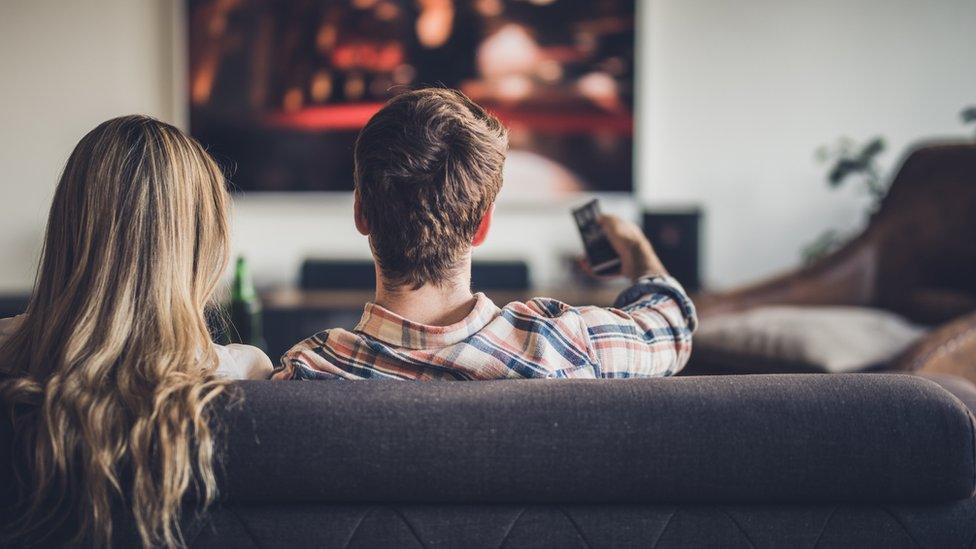More online TV channels could face regulation
- Published

More online TV channels could be regulated under plans to protect young viewers from harmful content.
More then seven in 10 UK households have an internet-connected smart TV, according to figures from regulator Ofcom.
These can give access to up to 900 unregulated channels.
The government proposals, which are subject to consultation, would extend Ofcom's powers to the most popular and easily accessible unregulated channels.
Ofcom is responsible for regulating TV, radio and video-on-demand services and breaches of its can result in sanctions including fines.
Rules cover areas like protecting children from harmful content and impartiality for news.
Unregulated channels are often watched in a similar way to traditional TV by browsing through channels using an electronic programme guide (EPG).
However, only a limited list of EPGs are currently regulated by Ofcom - Freeview, Freesat, Sky, Virgin Media, and YouView.
According to the government, at least 19 EPGs are unregulated, including Samsung TV Plus, Pluto TV, LG Channels and Amazon Freevee, with such services growing in popularity.
These platforms allow viewers to watch shows which are often tailored to a particular interest, like World War TV or The Chat Show Channel. Other channels are dedicated to a single programme such as Come Dine With Me or Masterchef.
While some unregulated channels voluntarily follow rules on inappropriate content, viewers cannot complain to Ofcom if they are concerned by a programme and the regulator has no powers to issue fines or other sanctions if a channel broadcasts harmful material.
Research by the Department for Culture, Media and Sport (DCMS) found examples of potentially harmful content which could have been found by children, including swearing and sexual content before the 9pm watershed, when programmes unsuitable for children are not allowed to be broadcast.
Unregulated channels also do not have to follow Ofcom rules on ensuring subtitles, audio description and signing are available for people with disabilities, and are not required to ensure public service broadcasters are shown prominently in TV guides.
DCMS said the government's proposals would extend the list of EPGs regulated by Ofcom to include the most popular and easily accessible services available via a TV.
The department said this would ensure fair competition, whilst preserving the choice offered by new services.
Gill Hind, director of TV at Enders Analysis, said the audiences for unregulated channels were tiny compared to linear TV but were growing.
She said it was right for Ofcom to consider how to regulate these channels but that there could be challenges depending on who owned them.
"If it is existing broadcasters then this is relatively simple, but it is so easy to launch a new service - what if it were a news channel launched by a company with little interest in impartial news?" she said.
Announcing the plans at a Royal Television Society conference in Cambridge, Culture Secretary Lucy Frazer said: "We recognise that internet provided TV is growing.
"But while this shift is an exciting one, it's our job to look at those channels that fall outside our existing regulations."
She added: "Any change to regulations must strike a balance between protecting people - particularly the young and vulnerable - while protecting freedom of speech, and not unduly burdening the TV industry."
- Published3 August 2023